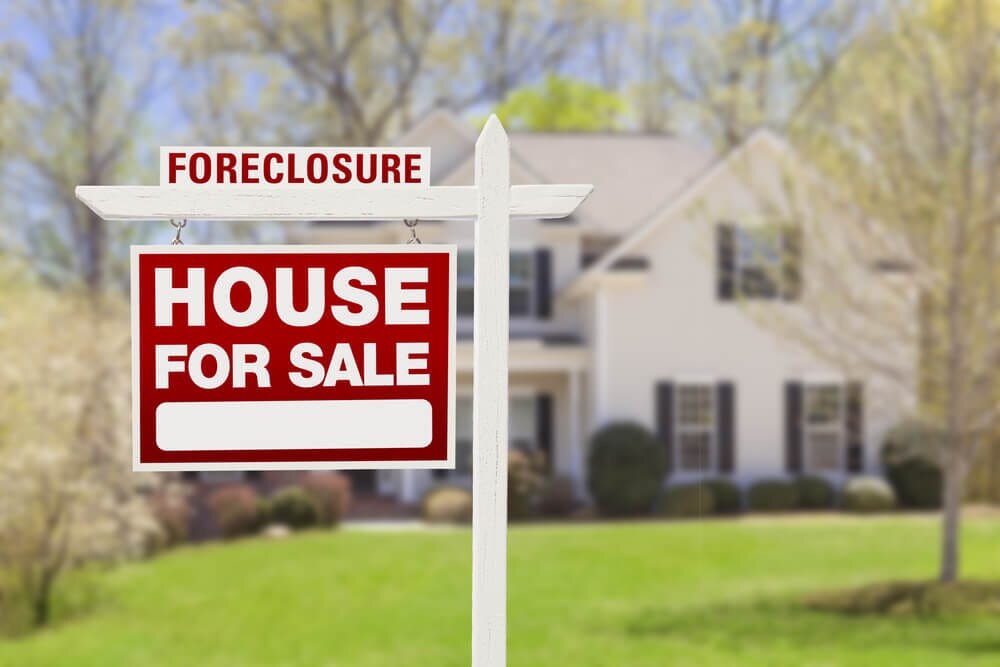Foreclosure occurs when a homeowner is unable to make their mortgage payments on time and has no way to catch up on the missed payments. Because a mortgage is a legal agreement between you and your lender, once you’ve defaulted on the loan, the lender has the right to auction off the property to cover any outstanding debts or liens, leaving you homeless and credit through the floor.
No one wants to receive a notice of foreclosure and yet, in a nationwide study, nearly 1 million Americans were afraid of losing their homes (U.S. Census Bureau Household Pulse Survey, fielded from July 27 to Aug. 8, 2022). Foreclosure can occur from a number of reasons, including:
- Job loss or loss of income
- Divorce or death of a spouse/partner
- Mounting discretionary or revolving debt, including medical and credit cards
- Moving without being able to sell the home
- Natural disaster coupled with homeowner insurance issues
Gaeta Properties is a local real estate company operating in MA that has built their business by buying distressed houses and properties in the state for cash. They promise competitive cash offers without the hassle of dealing with anyone you don’t want to including real estate agents, title companies, traditional bank financing, and more!
What is Foreclosure?
Imagine a scenario where you or your spouse has recently faced a job loss. Despite having the same financial obligations, there isn’t enough money to cover expenses, including the mortgage payment. When you’re in such a situation, what comes next? Even upon securing a new job, the accumulated debt during the unemployment period may be overwhelming to settle within a reasonable timeframe. Consequently, the bank initiates the foreclosure process if you can’t make other arrangements with them.
How Long Do You Have To Get Out of Your House After Foreclosure?
In many states, the foreclosure process typically involves a series of missed payments, public notices, formal foreclosure, auction, and finally eviction. However, the timeline for each stage can vary depending on the state. This means you could have a window of anywhere between 120 days to nine months before the bank can proceed with either a judicial or non-judicial foreclosure. Throughout this period, your lender will attempt to make contact through phone calls, mail, and email to keep you informed about the proceedings. If you have the ability to, you should always record or make note of when those interactions occur to protect yourself down the line.
Facing foreclosure is undoubtedly a stressful and challenging experience for any homeowner. One of the most pressing concerns is understanding the timeline for vacating the property after the foreclosure process is complete. In MA, the duration you have to leave your home can vary based on several factors, including the type of foreclosure and the lender’s actions.
The Foreclosure Process in Massachusetts
MA typically uses a non-judicial foreclosure process, which means the lender can foreclose on the property without going through the court system. Once you have missed several mortgage payments, the lender will issue a Notice of Default and eventually a Notice of Sale, informing you that your home will be sold at auction to satisfy the unpaid debt.
After the Foreclosure Sale
Once the foreclosure sale takes place, the winning bidder or the lender (if no bids are higher than the amount owed) will become the new owner of the property. In Massachusetts, you do not have the right to redeem the property after the foreclosure sale, which means you cannot reclaim ownership by paying off the full amount owed. At this point, the new owner must take legal steps to evict you if you do not voluntarily leave.
Eviction Process
The new owner must serve you with a Notice to Quit, giving you a specific period, typically 30 days, to vacate the property. If you do not leave by the end of this notice period, the new owner can then file an eviction lawsuit, known as a Summary Process action, to legally remove you from the property. This legal process can take several weeks to months, depending on the court’s schedule and whether you contest the eviction.
Final Considerations
In summary, the time you have to leave your house after foreclosure in MA can range from a few weeks to several months, depending on how quickly the new owner initiates and completes the eviction process. It’s crucial to stay informed about each step of the foreclosure and eviction process and to seek legal advice to understand your rights and options during this challenging time.
The Different Types of Foreclosure
There are two different types of foreclosure you may experience: nonjudicial foreclosure or judicial foreclosure.
What Is Non-Judicial Foreclosure?
A non-judicial foreclosure is the fastest and most cost-effective method for a lender to foreclose on your MA property. This process does not require the lender to take you, the homeowner, to court and can be completed in accordance with state statutes. During a non-judicial foreclosure, the lender repossesses your home to sell it and recover the outstanding debt using what’s called a “power-of-sale” clause in the deed of trust. This clause allows the lender to sell the property without court supervision. Not every state permits non-judicial foreclosures, but in those that do, lenders typically prefer this option to avoid the additional time and expenses associated with court proceedings. This process generally provides less time for the homeowner to remedy the default or contest the foreclosure compared to judicial foreclosures, making it a more efficient route for lenders.
States that Allow Non-Judicial Foreclosure
Alabama, Alaska, Arizona, Arkansas, California, Colorado, District of Columbia (conditionally), Georgia, Hawaii, Idaho, Maryland, Massachusetts, Michigan, Minnesota, Mississippi, Missouri, Montana, Nebraska, Nevada, New Hampshire, New Mexico, North Carolina, Oklahoma, Oregon, Rhode Island, South Dakota, Tennessee, Texas, Utah, Virginia, Washington, West Virginia, and Wyoming.
What Is Judicial Foreclosure?
In states that require judicial foreclosure, your lender must file a lawsuit asking the court to issue an order to allow for the sale of the home. Massachusetts is a Non-Judicial state though in certain circumstances the court may need to be involved. The lender must provide you with this letter. Whether you agree or not, you must respond to the letter or the lender will automatically win the case and be allowed to put your home up for a foreclosure sale. When the house is sold, you are still entitled to the difference between what you still owe on the mortgage and the amount the house sold for, in some instances.
Auctions are not like regular home sales and generally the house is not sold for market value. This means that even if your house is in great shape and worth a lot more than what is left on your mortgage, you may still find yourself owing tens of thousands (if not hundreds of thousands) of dollars for a house you no longer own because it sold for far less than the debt amount! This is called a deficiency judgment. It’s an expensive and long process for lenders to take to try and recoup their debt, which is why most prefer a non-judicial foreclosure.
States that Predominantly Use Judicial Foreclosure
Connecticut, Delaware, District of Columbia, Florida, Hawaii, Illinois, Indiana, Iowa, Kansas, Kentucky, Louisiana, Maine, New Jersey, New York, North Dakota, Ohio, Pennsylvania, South Carolina, Vermont, and Wisconsin
Get an offer today, sell in a matter of days.
How to Sell Your House Before Foreclosure in MA
Let’s break down a few ways you can sell your house before you get too far down the rabbit hole, depending on your time frame and situation:

Hire A Real Estate Agent
When considering selling a house or property, many individuals immediately turn to local real estate agents. However, in challenging situations like foreclosure, this may not always be the best option. While a skilled agent can list your property on the MLS, prepare it for showings, and facilitate the selling process, a significant portion of the sale proceeds typically goes towards their commission, ranging from 3% to 6%. This can be a substantial amount, especially when every penny is crucial for repaying debts and avoiding foreclosure.
Moreover, there’s uncertainty surrounding the timeline for closing the sale. Despite assurances from realtors, finding the right buyer and undergoing the traditional closing process, which can take over 30 days, may not align with the urgent needs of some homeowners facing imminent auction or eviction.

Short Sale
If you find yourself in a situation where you owe more on your property than its current market value, you may need to consider a short sale. A short sale becomes necessary when the outstanding mortgage balance exceeds the property’s worth. For instance, if your house is valued at $150,000 in the current market but you still owe $200,000 on it, a short sale is crucial. While a short sale may appear to be a viable solution, it is important to note that the process is neither quick nor simple.
Initially, you will be required to obtain approval from your lender to proceed with a short sale. To qualify for this option, you must demonstrate financial hardship by providing documentation such as W-2s, medical bills, etc. In cases of income loss, the lender will need evidence that the financial setback is long-lasting and unlikely to be resolved in the near future. Upon approval from the lender, you will need to engage a real estate agent and an attorney specializing in short sales. These professionals will charge fees similar to those applicable in a traditional home sale.
If you have maintained communication with your lender throughout the foreclosure process and it has not been prolonged, there is a higher likelihood of the lender approving the short sale. Opting for a short sale enables the lender to avoid the time and costs associated with foreclosure proceedings while recovering a portion of the outstanding mortgage payments. However, for the average homeowner, a short sale can have repercussions lasting 5 to 7 years.
While a short sale may help in settling some of your debts after selling the property, it can have a negative impact on your credit similar to that of a bankruptcy declaration. Credit bureaus include mortgage delinquencies and short sales in their records, making it challenging for former homeowners to secure credit cards, finance a car, or purchase another property for an equivalent duration as a bankruptcy.

Sell Your House AS-IS to A Cash Buyer
If you’re under a strict timeline to sell your house before a foreclosure progresses to auction and eviction, you have other options! You can try to sell your property with a real estate agent, work with your lender to conduct a short sale, or – best of all – turn to a trusted and reliable cash investor to help you with your situation.
Some of the benefits of selling to a direct cash investor include:
- A quick and seamless closing process.
- Avoid paying any commissions or fees.
- You won’t have to worry about the traditional marketing process for your house and impatiently waiting for a buyer.
- No need to clean-up or complete any repairs!
When you sell your home as-is to a direct cash buyer, not only can you avoid losing your home to an auction and eventually destroying your credit, but you may also be able to sell the property for enough money to get out of financial debt and have something left over in the end. Moving on with your life without the burden of a monthly mortgage payment and debt hanging over your head is one of the best gifts you can give yourself!
Can You Stop Foreclosure Once it Starts?
Pay Off Your Loan & Fees
You’ve now found yourself in a difficult situation. Your debt is compounding while your income remain the same. It’s time to be realistic and look at the avenues you have to pay down your debt and fast. Do you have any items of value you could liquidate? Maybe you have friends or family that can gift you the necessary money or provide you with a loan until you get things back on track. If you are proactive about paying down your debt and stopping the foreclosure process, you will likely need a financial professional to help you restructure your budget. Sometimes the very institutions that hold your mortgage also have divisions to help with your personal budgets or financial advisors. Use one of these solutions or combine them all to help climb that avalanche of debt and get back to living a life free of stress.
Declare Bankruptcy
If you are facing the possibility of foreclosure on your home, bankruptcy might be a last resort option to consider. However, it is vital to understand that bankruptcy is a complex process that will necessitate the expertise of a specialized bankruptcy attorney. Should your petition be approved by the court, you will need to participate in a government-approved credit counseling program, and the bankruptcy will remain on your credit report for a period of 7 years. It’s crucial to recognize that a bankruptcy can have a lasting impact on various aspects of your life, affecting your ability to secure future loans, credit cards, bank accounts, and even rental opportunities.
The Homeowner Affordability and Stability Plan (HASP)
If you find yourself with debt surpassing your income, you might meet the criteria for the Homeowner Affordability & Stability Plan (HASP). HASP serves as a loan modification initiative aimed at borrowers facing foreclosure risks due to inadequate earnings. This federal program aims to assist homeowners in the United States in adjusting their monthly payments to align with their restricted budgets. You can check your eligibility and apply for the program here.
Related Articles
5 Ways the Foreclosure of Your Massachusetts House Will Impact You in the Future
What Homeowners in Massachusetts Can Expect During the Foreclosure Process
The Difference Between Pre-Foreclosure and Foreclosure for Homeowners in Massachusetts
How to Sell Your House During Bankruptcy in Massachusetts
Stopping the Foreclosure Process: A Guide for Massachusetts Homeowners
Sell Your House Fast to a Cash Buyer
Are you ready to sell your house but don’t have the time to wait 30+ days for a traditional close? Does a short sale seem like a fast way to ruin your credit? Prefer to pay off all your debt at once and get the bank off your back fast? A direct home buyer and cash investor might be exactly the solution you’ve been searching for! When you work with a trusted and reliable investor with a great reputation in your area, you’ll find a helpful company with cash on hand that is ready to purchase your home from your as-is. With a cash buyer, you can skip the lengthy process of foreclosure, eviction, and auction within a matter of days, and save your credit as well!
You may not get full market value for your house or property when you sell to a trusted cash investor, but the timeliness of a fast closing, and the lack of fees, required inspections, and commissions often balance this out at close. Best of all, because an investor can close fast, you can often close before the bank is able to auction off your property! This means you can sell the property for the amount that benefits you versus the pennies to the dollar price the bank will often try to sell your house for just to get it off the books.
We Buy Houses in Foreclosure & Pre-foreclosure–
Get Your Offer Today!
Does the idea of finally walking away from a property without the storm cloud of foreclosure hanging over your head? Contact a real professional at Gaeta Properties to find out more and get a fair cash offer for your property today.

